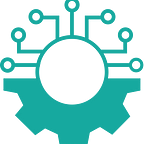By Saurabh Gupta, Co-Founder of CODEX
In the 2021 AI adoption survey conducted by O’Reilly, the biggest barrier to AI adoption is the lack of talent and the challenge in hiring skilled professionals. The demand of AI experts has clearly surpassed the supply in the industry, that is ambitious to build production-ready AI systems in next 1–3 years’ timeframe.
However, the companies still hold strong AI aspirations and to fulfill the same, they prefer the mix of talent to translate business needs into the systemic requirements, build AI systems, release, and activate by integrating AI into processes, and interpret results.
In 2017, Gartner said more than 40% of the AI tasks will be automated by 2020. However, the data and AI adopters see the value in automation as an opportunity to free up the human resource for creative tasks than using it for cut-down. The workforce with good business knowledge can play an important role in exploring data in the organization, provided they can handle data, and have a tool to explore.
Building the data democracy
Data democratization is the concept of making business data available to both technical and non-technical users in the organization. It allows users to access, manipulate, visualize, and derive insights from business data. To do this successfully, organizations ease the bottlenecks to provide seamless access to quality data within the data security and governance limits.
The state of data democracy catalyzes the consumption of data, that gives hands and feet to build data products at scale. Pharma research and development is one of the world’s most expensive processes, costing approximately $2.6B to get a drug through all stages of development and testing into the market. A pharmaceutical company headquartered in Germany, has created a data democratization process through which the metadata across various stages of clinical trials gets distributed on the shared framework.
Why democratization of data is even needed?
Nearly 72% of technology and business executives accept that they are trying hard to establish culture of data experience to open gates for data democracy. However, they do acknowledge the power of “open” data within the organization. More the number of people with diverse expertise accessing the data, faster would be the generation of business insights backed with quality data.
Furthermore, the process of picking a business problem, defining the success metrics, and integrating AI into the business process requires business teams and data scientists to join forces to design AI intervention. The reality though is — a group of data science experts get dumped with such requests from multiple groups and prioritization becomes a challenge. And acquiring domain expertise to understand the problem requires time, resilience, and perseverance.
5 actions for Chief Data Officers
Growing culture of data within the business units is not an easy task. A clear and strong communication plays a vital role in valorizing data initiatives with the business functions. Here are some best practices how industry leaders have designed data democratization program in their organizations.
- Data advocacy boosts data experiments — In an organization, it is crucial for employees to realize the importance of data. Business users should be trained on the following: problem solving skills, SQL skills and Exploratory Data Analysis. Training programs can help in upskilling users.
- Self-service data toolkit builds the capability- Self-service analytical tools help users to create reports and dashboards to get business insights in just a few clicks. It can be a great tool which can help many employees who are not very familiar with coding skills. It will save a lot of time as well. Investing in a self-service solution is a good plan to enable data democratization in organization.
- Data for everyone, but with governance: Ungoverned data access may become chaotic and build friction between the teams. A good idea could be data marketplace, where access to data sets pass through an authorization window.
- Address data needs by personas — Organizations start with an assessment to survey different roles and capture patterns of data utilization. The objective is to define personas and build a data access framework. For example, a CXO layer needs a dashboard for storytelling with data and visual insights. Likewise, business analysts might need data models for analysis to advise based on insights.
- Define citizen roles and competencies — Citizen roles are pickup the pace in the industry. Non-tech folks with domain expertise can do wonders if they know how to read and interpret data. Typical citizen roles could be data advocates, analysts, or even citizen data scientists. These roles are expected to have strong data analysis, interpretation, and storytelling skills.
Into the future
Data democratization is an evolutionary trend that needs people to express themselves with data. It requires skills to handle data, then build interpretation, and finally take some actions. The CDO office supports these aspirations by structuring data literacy program, designing a robust data access framework, and position a low-code toolkit for “citizen” data community. While the data leadership in the industry continues to ponder on people and culture challenges, the democratization of data and AI is meant to scale up the numbers. The future of data experience is going to be interesting. Let us wait and watch!
